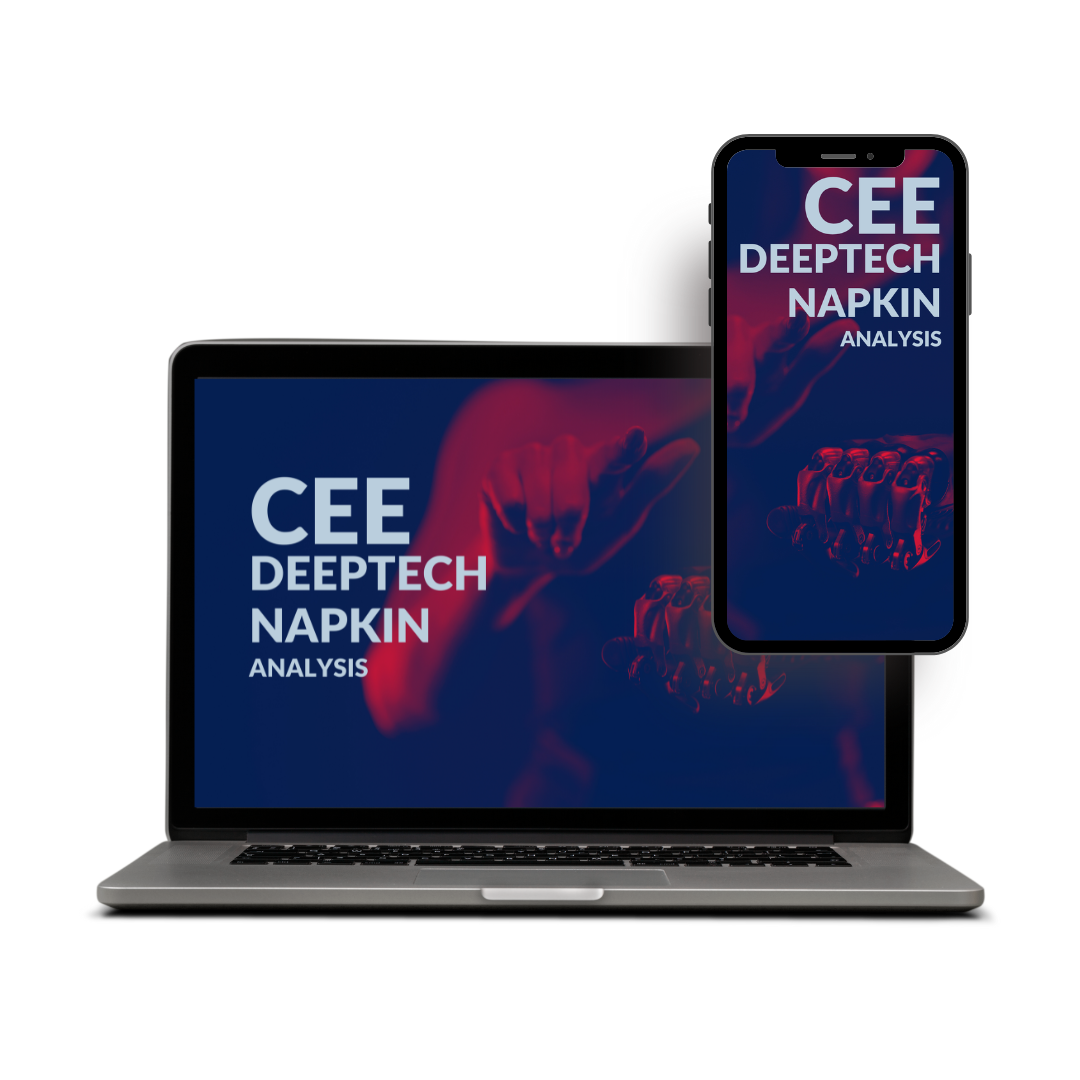
We want to help deeptech startups in the region to identify and achieve key milestones for securing their next investment.
Why create the Napkin now?
- While many benchmarks have been created – included the original SaaS Napkin by Nine Point Capital – it ommitted the benchmarks both for the region and deeptech startups.
- While there are regional benchmarks – including ones by Inovo.vc – there was no Napkin for the entire region – to analyze the trend other than Western Europe and the US.
- While there are deeptech benchmark – Deeptech Index and report by XAnge and Coulter Partners – they focus solely on the US or Western Europe – the region differs with particular patterns and industry trends.
FAQ
What is the purpose of DeepTech Napkin?
Deeptech Napkin aims to provide startups with reliable data and benchmarks for evaluating their progress in the CEE region. The analysis can be particularly useful for founders who can gain insights into market trends, startup performance, and investment opportunities.
Who can participate in the survey?
The survey is open to venture capitalists with deeptech startups in their portfolio. The VCs are located in Estonia, Latvia, Lithuania, Finland, Poland, Czech Republic, Slovakia, Hungary, Romania, Bulgaria, Ukraine, Moldova, Serbia, Bosnia and Herzegovina, Albania, North Macedonia
Montenegro, Kosovo, Croatia, Slovenia.
We invite the funds one by one based on the matrix of countries and stages, however if you would like to share a survey with fellow deeptech VCs from the above countries – feel free to do so.
When will the survey results be available?
The survey results will be compiled and made available this summer. If you agree to share the name of your fund with us in the survey we will be happy to provide you with the link and tag you in all of social media channels.
Who can I contact for more information?
If you have any questions or need further assistance, please contact us at i.bany@aperventures.com
What if I don’t have all the data required for the survey or don't want to reveal it?
If you’re missing some data, don’t worry. We encourage you to provide as much information as possible. Partial data can still contribute valuable insights and help us create a comprehensive benchmark. If you’re unsure about specific data points, you can leave those sections blank.
Are there any guidelines for estimating financial projections or metrics?
While exact figures are ideal, we know that projections can be challenging. Use your best estimates and be as accurate as possible. If you’re uncertain, provide a range or note any assumptions you’ve made. Our goal is to gather a realistic snapshot of the deeptech ecosystem.
What should I do if the progress of the startups I’m evaluating doesn’t align with the survey questions?
It’s common for startup progress to deviate from predefined milestones. If you encounter this issue, provide contextual information in the additional comments sections. Your insights help us refine our survey to better accommodate the diverse growth patterns of deeptech startups.
How should I approach questions that seem too generic for the specific needs of my portfolio startups?
When faced with generic questions, interpret them in the context of your portfolio’s specific circumstances. Use the additional comments section to elaborate on any unique aspects or details that better represent your startups. Your feedback is instrumental in refining the survey for greater relevance and accuracy.
Is there a way to account for the impact of recent economic shifts on the startups I’m evaluating?
Economic shifts can have profound effects on startup performance. If recent economic changes have significantly impacted your portfolio companies, describe these impacts in the additional comments sections. This information helps contextualize the data and improve the accuracy of our benchmarks.

